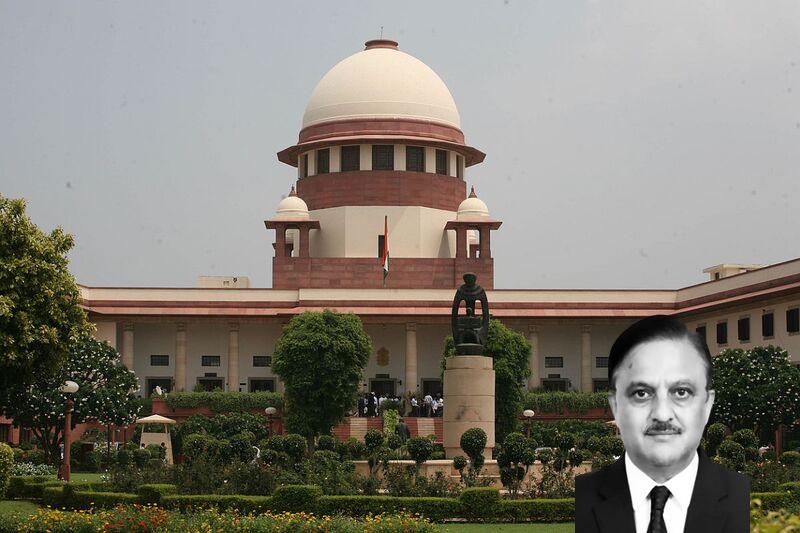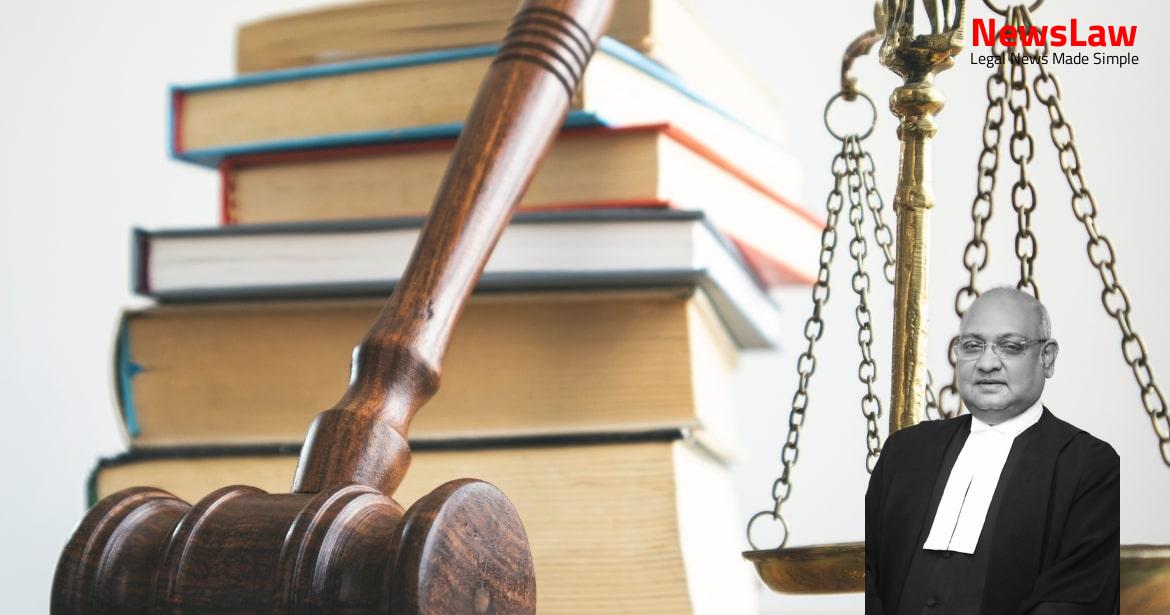The appellant filed a petition before the High Court of Karnataka at Bengaluru under Section 482 of the Code of Criminal Procedure, 1973 (for short, ‘Cr.PC’) seeking the relief of quashing of the said complaint. The appellant purchased the second property by a registered sale deed on 29 June 2019 for a consideration of Rs.2.47 crores from accused no.1–Madhukar Angur. An Enforcement Case Information Report (ECIR) was registered on 16 October 2020 by the ED against accused nos.1, 2 and 3, namely Madhukar Angur, his wife Priyanka Angur and Mr Ravikumar, Partner, Srivari Education Services and other unknown accused alleging the commission of the offence of money laundering under Section 3 of the PMLA.
730 of 2016 (PS Madiwala) 143, 144, 147, 148, 149, 506 and 120- B of IPC Chargesheet filed on 4 July 2017 in which the appellant is not named as the accused Chargesheet is filed under Sections 143, 144, 147, 148, 149, 506, 120-B of IPC 3. The allegation against the appellant in the complaint filed under the second proviso of Section 45(1) of the PMLA is that she has entered into a conspiracy with accused no.1– Madhukar Angur by getting executed nominal sale deeds in respect of the first and second properties in her name for the benefit of accused no.1. Therefore, the appellant’s acquisition of the first property can never be linked with the proceeds of the crime regarding the scheduled offence. The learned senior counsel relied upon an Income Tax Return filed by the appellant under the Income Declaration Scheme, 2016, by which she declared a total undisclosed income of Rs.26,42,54,193/-. She submitted that in the decision, this Court held that if an accused in the scheduled/predicate offence is acquitted/discharged, he cannot be prosecuted for the offence punishable under the PMLA. If Section 120-B of IPC can be treated as a standalone offence to attract prosecution under the PMLA, by that logic, a complaint under the PMLA can be filed where the allegation is of criminal conspiracy to commit an offence which is not a scheduled offence. Regarding the second submission, the learned Additional Solicitor General submitted that a person can be held guilty of the commission of a money laundering offence under Section 3 of the PMLA, even if he is not shown as an accused in the predicate offence.
Referring to Paragraph 11 of the Schedule to the PMLA, he urged that the first four offences in Paragraph 4 and all the offences in Paragraph 6 clearly show the legislature’s intention. — For the removal of doubts, it is hereby clarified that,— (i) a person shall be guilty of offence of money-laundering if such person is found to have directly or indirectly attempted to indulge or knowingly assisted or knowingly is a party or is actually involved in one or more of the following processes or activities connected with proceeds of crime, namely:— (a) concealment; or (b) possession; or (c) acquisition; or (d) use; or (e) projecting as untainted property; or (f) claiming as untainted property, in any manner whatsoever; (ii) the process or activity connected with proceeds of crime is a continuing activity and continues till such time a person is directly or indirectly enjoying the proceeds of crime by its concealment or possession or acquisition or use or projecting it as untainted property or claiming it as untainted property in any manner whatsoever. Clause (u) of sub-section (1) of Section 2 of the PMLA defines “proceeds of crime”, which reads thus: “2.Definition – (1) In this Act, unless the context otherwise requires,-.. (u) “proceeds of crime” means any property derived or obtained, directly or indirectly, by any person as a result of criminal activity relating to a scheduled offence or the value of any such property or where such property is taken or held outside the country, then the property equivalent in value held within the country or abroad; Explanation.—
For the removal of doubts, it is hereby clarified that “proceeds of crime” include property not only derived or obtained from the scheduled offence but also any property which may directly or indirectly be derived or obtained as a result of any criminal activity relatable to the scheduled offence. The explanation clarifies that the proceeds of crime include property, not only derived or obtained from scheduled offence but also any property which may directly or indirectly be derived or obtained as a result of any criminal activity relatable to the scheduled offence. ” The condition precedent for the existence of proceeds of crime is the existence of a scheduled offence.
Tersely put, it is only such property which is derived or obtained, directly or indirectly, as a result of criminal activity relating to a scheduled offence can be regarded as proceeds of crime.
Similarly, in the event the person named in the criminal activity relating to a scheduled offence is finally absolved by a Court of competent jurisdiction owing to an order of discharge, acquittal or because of quashing of the criminal case (scheduled offence) against him/her, there can be no action for money- laundering against such a person or person claiming through him in relation to the property linked to the stated scheduled offence. From the bare language of Section 3 of the 2002 Act, it is amply clear that the offence of money- laundering is an independent offence regarding the process or activity connected with the proceeds of crime which had been derived or obtained as a result of criminal activity relating to or in relation to a scheduled offence. In other words, the criminal activity may have been committed before the same had been notified as scheduled offence for the purpose of the 2002 Act, but if a person has indulged in or continues to indulge directly or indirectly in dealing with proceeds of crime, derived or obtained from such criminal activity even after it has been notified as scheduled offence, may be liable to be prosecuted for offence of money- laundering under the 2002 Act — for continuing to possess or conceal the proceeds of crime (fully or in part) or retaining possession thereof or uses it in trenches until fully exhausted.
Coming back to Section 3 of the PMLA, on its plain reading, an offence under Section 3 can be committed after a scheduled offence is committed. In such a case, the person who assists the accused in the scheduled offence for concealing the proceeds of the crime of extortion can be guilty of the offence of money laundering.
In a given case, if the prosecution for the scheduled offence ends in the acquittal of all the accused or discharge of all the accused or the proceedings of the scheduled offence are quashed in its entirety, the scheduled offence will not exist, and therefore, no one can be prosecuted for the offence punishable under Section 3 of the PMLA as there will not be any proceeds of crime. Another allegation is that she is shown to have purchased the second property from accused no.1, though she did not have the resources to pay the consideration. The case of the appellant is that she possessed a substantial amount, as can be seen from the declaration made by her under the Income Declaration Scheme, 2016 in September 2016 and therefore, at the time of the acquisition of the second property, more than sufficient money was available with her to acquire the second property.
The contention before this Court was that even minor offences have been included in the Schedule, and even compoundable offences form part of the Schedule. However, it had been urged before us that there is no consistency in the approach as it includes even minor offences as scheduled offence for the purposes of offence of money- laundering, more so even offences which have no trans-border implications and are compoundable between the parties. Needless to underscore that the 2002 Act is intended to initiate action in respect of money-laundering activity which necessarily is associated with the property derived or obtained by any person, directly or indirectly, as a result of specified criminal activity. The question is whether the offence under Section 120-B of IPC, included in Paragraph 1 of the Schedule, can be treated as a scheduled offence even if the criminal conspiracy alleged is to commit an offence which is not a part of the Schedule.
— (1) Whoever is a party to a criminal conspiracy to commit an offence punishable with death, imprisonment for life or rigorous imprisonment for a term of two years or upwards, shall, where no express provision is made in this Code for the punishment of such a conspiracy, be punished in the same manner as if he had abetted such offence. Though offences punishable under Sections 392 to 402 regarding robbery and dacoity have been included in part A of the Schedule, the offence punishable under Section 379 of committing theft and the offence punishable under Section 380 of theft in a dwelling house are not made a part of parts A and B of the Schedule.
The offence under Section 405 of criminal breach of trust, which is punishable under Section 406, is not a part of the Schedule The said offence becomes a scheduled offence by virtue of clause (3) of part C of the Schedule only if the offence has cross-border implications; e. The offence under Section 132 of the Customs Act of making a false declaration, etc., becomes a scheduled offence in view of sub-clause (ii) of Clause (y) of sub-section (1) of Section 2 of the PMLA only if the total value involved in the offence is Rs.1 crore or more. The learned Additional Solicitor General argued that as Section 120-B of IPC is included in Part A to the Schedule, even if the allegation is of making a criminal conspiracy to commit an offence which is not a part of the Schedule, the offence becomes a scheduled offence.
By that logic, a conspiracy to commit any offence under any penal law which is capable of generating proceeds, can be converted into a scheduled offence by applying Section 120-B of the IPC, though the offence is not a part of the Schedule. In other words the legislative intention, i.e., the true or legal meaning of an enactment is derived by considering the meaning of the words used in the enactment in the light of any discernible purpose or object which comprehends the mischief and its remedy to which the enactment is directed.”
Case Title: PAVANA DIBBUR Vs. THE DIRECTORATE OF ENFORCEMENT
Case Number: Crl.A. No.-002779-002779 / 2023



